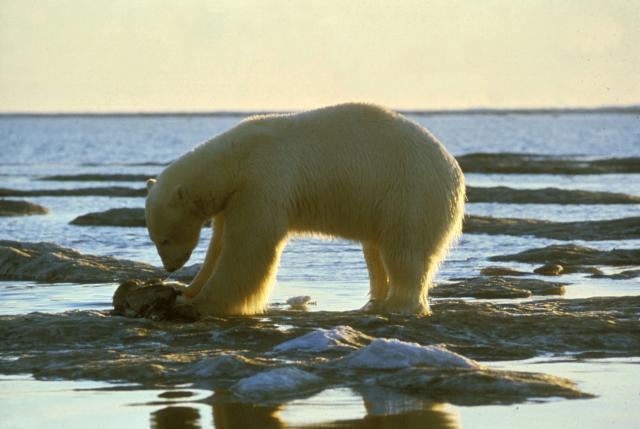As people around the world mourn the death of Knut the polar bear, up to two-thirds of the entire wild polar bear population remains threatened by human actions.
Knut, a polar bear at Berlin Zoo, died unexpectedly this past Saturday. The polar bear rose to fame after being rejected by his mother, and “Knutmania” ensued.
How many of Knut’s adoring fans had their heart strings pulled by the loss of this one famous polar bear, yet don’t think twice about their contributions to climate change, one of the chief threats to the survival of the entire polar bear population?
Polar bears are listed as “vulnerable” on the IUCN Red List of Threatened Species. The IUCN explains the categorization:
“Polar bears rely almost entirely on the marine sea ice environment for their survival so that large scale changes in their habitat will impact the population (Derocher et al. 2004). Global climate change poses a substantial threat to the habitat of polar bears. Recent modeling of the trends for sea ice extent, thickness and timing of coverage predicts dramatic reductions in sea ice coverage over the next 50-100 years (Hassol 2004). Sea ice has declined considerably over the past half century. Additional declines of roughly 10-50% of annual sea ice are predicted by 2100. The summer sea ice is projected to decrease by 50-100% during the same period.”
More recent studies have found sea ice is melting even faster than expected, and the U.S. Geological Survey predicted that future reduction of Arctic sea ice could result in a loss of two-thirds of the world’s polar bear population by 2050.
BBC News reported earlier this year on a polar bear that swam for nine days in search of sea ice. Research zoologist George M. Durner stated that the bear swam continuously for 232 hours. “This dependency on sea ice potentially makes polar bears one of the most at-risk large mammals to climate change.”
The good news is that not all polar bears need to suffer as long distance swimmers, or have an untimely end like Knut. The U.S. Geological Survey released a new study in December stating, “Sea-ice habitats essential to polar bears would likely respond positively should more curbs be placed on global greenhouse gas emissions.”
The question is: are people willing to curb emissions to save all the Knuts of the world?
Subscribe to our newsletter
Stay up to date with DeSmog news and alerts







